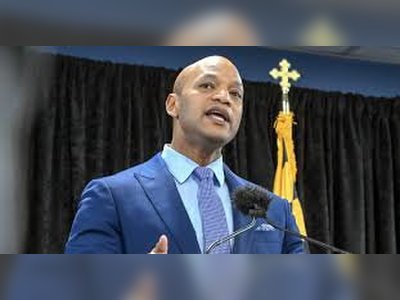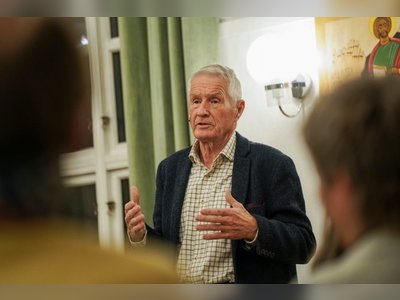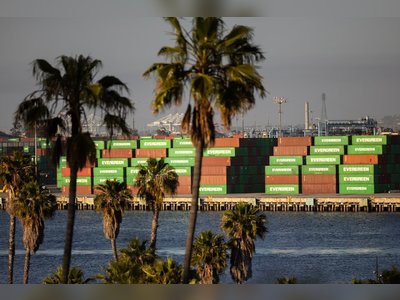Cuba's Electrical Crisis: A Nation in the Dark
A debilitating power grid failure exposes deeper economic and political fractures in Cuba.
Cuba's energy landscape has once again been thrust into disarray, following a critical failure in its national grid—an incident that left millions without power.
The island nation began the arduous task of restoring electricity after this widespread blackout, the latest manifestation of a chronic problem plaguing Cuba's aging energy infrastructure.
Energy Minister Vicente de la O'Levy affirmed the government's priority to restore power initially to essential services such as hospitals and water pumping facilities, a measure that underscores the severity of Cuba's electrical crisis.
As millions of citizens remained without electricity, many were confined to their homes, with schools shuttered and workers kept idle, pending the restoration.
The minister projected a cautious optimism, suggesting a full restoration by Thursday.
His comments highlight the precarious situation: "We have very capable specialists and they are all involved.
We're going step by step," he said.
The pace of recovery mirrors the delicate state of Cuba's grid, which has been stretched thin by a labyrinth of challenges including oil shortages, natural disasters, and a crumbling economic framework.
The blackouts are symptomatic of wider issues engulfing the Caribbean island's energy sector.
With oil imports from traditional partners such as Venezuela, Russia, and Mexico increasingly scarce, Cuba's obsolete oil-fired power plants have faltered under the pressure, inducing recurrent nationwide outages over recent months.
The fallout from these disruptions has been profound.
Alongside the energy shortages, Cubans are grappling with scarcities in food, medicine, and basic utilities, prompting a record exodus from the island in the last three years.
Cuban authorities attribute much of the crisis to U.S.-imposed sanctions that complicate crucial transactions needed to secure fuel.
The latest outage, originating from a malfunction at the Antonio Guiteras power plant—Cuba's leading electricity producer—was exacerbated by concurrent maintenance at other major facilities.
This concatenation of failures left the grid starved of power, culminating in a systemic collapse.
Cubans have already grown accustomed to daily rolling blackouts even before this week's total collapse.
Frustration among citizens is palpable, as illustrated by Havana hotel worker Danielis Mora's remarks: "Where I am living ...
there is no gas either, if there is no electricity there is no way to make food, it has to be with firewood, or charcoal."
The crisis has galvanized sporadic protests, intensified by shortages of water, gas, and essential foodstuffs, leaving Havana and other cities teetering on the brink of broader societal unrest.
In an emergency response, Turkish-owned floating power stations have been deployed off the coast of Havana to supply electricity to critical locations.
Faced with an untenable energy trajectory, the Cuban government recently mandated both state and private sectors to increase reliance on renewables, while curbing the use of air conditioning as part of a suite of austerity measures designed to ameliorate the crisis.
The challenge for Cuba lies not only in fixing its immediate energy deficits but in navigating the geopolitical and economic obstacles that threaten to keep the island in perpetual darkness.
The island nation began the arduous task of restoring electricity after this widespread blackout, the latest manifestation of a chronic problem plaguing Cuba's aging energy infrastructure.
Energy Minister Vicente de la O'Levy affirmed the government's priority to restore power initially to essential services such as hospitals and water pumping facilities, a measure that underscores the severity of Cuba's electrical crisis.
As millions of citizens remained without electricity, many were confined to their homes, with schools shuttered and workers kept idle, pending the restoration.
The minister projected a cautious optimism, suggesting a full restoration by Thursday.
His comments highlight the precarious situation: "We have very capable specialists and they are all involved.
We're going step by step," he said.
The pace of recovery mirrors the delicate state of Cuba's grid, which has been stretched thin by a labyrinth of challenges including oil shortages, natural disasters, and a crumbling economic framework.
The blackouts are symptomatic of wider issues engulfing the Caribbean island's energy sector.
With oil imports from traditional partners such as Venezuela, Russia, and Mexico increasingly scarce, Cuba's obsolete oil-fired power plants have faltered under the pressure, inducing recurrent nationwide outages over recent months.
The fallout from these disruptions has been profound.
Alongside the energy shortages, Cubans are grappling with scarcities in food, medicine, and basic utilities, prompting a record exodus from the island in the last three years.
Cuban authorities attribute much of the crisis to U.S.-imposed sanctions that complicate crucial transactions needed to secure fuel.
The latest outage, originating from a malfunction at the Antonio Guiteras power plant—Cuba's leading electricity producer—was exacerbated by concurrent maintenance at other major facilities.
This concatenation of failures left the grid starved of power, culminating in a systemic collapse.
Cubans have already grown accustomed to daily rolling blackouts even before this week's total collapse.
Frustration among citizens is palpable, as illustrated by Havana hotel worker Danielis Mora's remarks: "Where I am living ...
there is no gas either, if there is no electricity there is no way to make food, it has to be with firewood, or charcoal."
The crisis has galvanized sporadic protests, intensified by shortages of water, gas, and essential foodstuffs, leaving Havana and other cities teetering on the brink of broader societal unrest.
In an emergency response, Turkish-owned floating power stations have been deployed off the coast of Havana to supply electricity to critical locations.
Faced with an untenable energy trajectory, the Cuban government recently mandated both state and private sectors to increase reliance on renewables, while curbing the use of air conditioning as part of a suite of austerity measures designed to ameliorate the crisis.
The challenge for Cuba lies not only in fixing its immediate energy deficits but in navigating the geopolitical and economic obstacles that threaten to keep the island in perpetual darkness.












